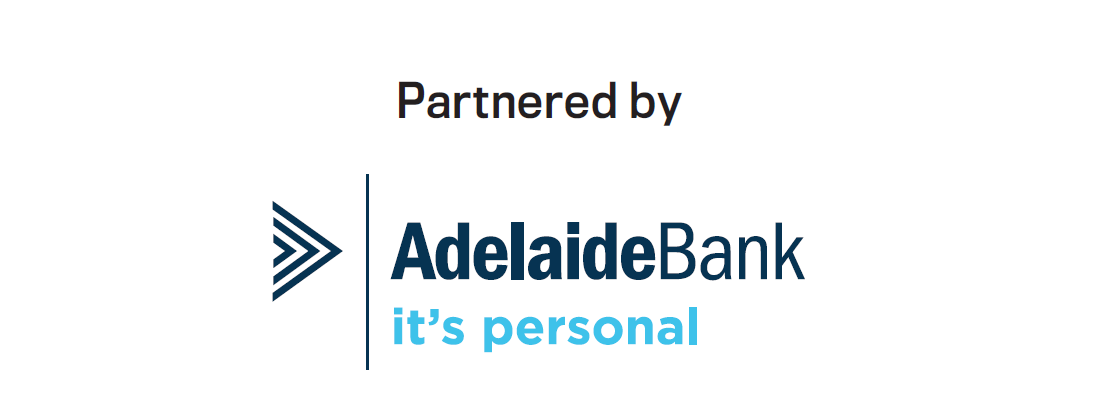
A good mentor can arm new brokers with the skills and knowledge to take their broking business to the next level. Tas Bindi speaks with a respected Western Australian mentor about the ins and outs of mentoring new-to-industry brokers.
Adelaide Bank is proud to sponsor The Adviser’s Meet the Mentor series. As a lender solely dedicated to third-party distribution, our passion is supporting brokers while ensuring our industry continues to thrive well into the future. A willingness to adapt underpins ongoing success. This is something we’ve grown to understand since pioneering the distribution of lending products via intermediaries in the ’90s. We trust you’ll find the knowledge shared by our mentors valuable and we look forward to partnering with you as our industry continues to evolve.
---------------------------------------------------------------------------------------------------------------------------------------------------
A major rite of passage for brokers is writing their first loan. And seeing a big smile on their face as it happens is one of the best parts of being a mentor, according to Simply Mentoring founder Karen Hambleton-O’Grady.
“I’ve been [mentoring] for a long time and the excitement on their face when they say ‘I just got my first loan approved’ never gets old,” she says.
The launch of Simply Mentoring came about in 2009 after Ms Hambleton-O’Grady was inspired to help others overcome the challenges she faced when she started out as a mortgage broker, such as understanding all the credit products in the market, policies and the overall lending process from beginning to end.
As she didn’t have any banking experience, the help of a mentor proved to be invaluable.
The value of a mentor
 Just like with any other skill set, Ms Hambleton-O’Grady says brokers have a lot to gain from the guidance of a quality mentor.
Just like with any other skill set, Ms Hambleton-O’Grady says brokers have a lot to gain from the guidance of a quality mentor.
“The first time I got in the pool and did 25 metres, I thought I was going to die. I thought they would have to send an ambulance. So, I got a coach. Now I swim 3 kilometres a day,” she says.
“I already had some basic skill sets, but I needed someone to mentor me to get me to a point where I actually felt successful in what I was doing with this new skill set.”
The Simply Mentoring founder, who describes her mentoring style as “consultative, nurturing, excitable, and passionate”, admits she still has a business coach because “everybody needs someone to go to when [they] have questions or doubts”.
“When you’re starting out in a brand-new business, you need to be able to ask the questions that would seemingly be embarrassing to ask another adult,” Ms Hambleton-O’Grady says.
“We don’t care how many times you ask us what an LVR is or how you calculate an interest-only loan.They’re not dumb questions. [You] are just learning.”
She notes that the shyness to ask seemingly embarrassing questions is one of the reasons she has moved away from conducting big group workshops.
“We still run them with three or four [people]... but we’ve mostly gone back to one-on-one sessions in the last year and a half because we found that when there are too many people in the room, people don’t ask the questions they need to ask,” Ms Hambleton-O’Grady explains.
Mentoring program ‘with a difference’
Today, her business, which she refers to as a “teaching brokerage”, offers an eight-module program for brokers and other financial services professionals covering: behaviours, first home buyers, construction, debt consolidation, business structures, self-managed superannuation funds and presentation.
From day one, Ms Hambleton-O’Grady says Simply Mentoring, which is the mentoring arm of the Simply Group, works with mentees on the “three Ps”: purpose, product and policy.
“They [learn] that they need to talk first about purpose with the customer, then [identify] what the customer needs product-wise. Then they’ve got to research the lender’s policy to match the first two Ps,” she explains.
“We keep honing that through every module so that they’re getting business-ready, sales-ready, product-ready and client-ready.”
Under her model, brokers seeking mentorship have the option to operate under Simply’s credit licence for a three-year term, after which they can either stay or establish their own brands.
“I think this is what makes us a little bit different. We actually say ‘you can be on our licence for three years and then go and [operate under] your own brand’,” she adds.
“In the three years that they’re with us, they get broker support, not just mentoring. They have someone to help lodge their deals. This allows them to learn the software really well.”
Brokers can also opt for just the mentoring service at a monthly fee, where they receive weekly mentoring session for six weeks and fortnightly sessions from there on, with each session lasting between 30 and 60 minutes.
Full-time commitment to customers
The first three months of the mentoring program is largely a “waiting game”, Ms Hambelton-O’Grady says, thus mentees aren’t expected to give up their full-time job during this period.
“It’s 12 weeks of just accreditations, waiting on paperwork, waiting on the [Australian Financial Complaints Authority], waiting on member organisations,” the Simply Mentoring founder says.
Over the next six to nine months, mentees are expected to “wean off their full-time job, so that at the end of the 12 months, they are [working on] the business full-time”.
Ms Hambleton-O’Grady, who developed the original mentoring and training program for the Mortgage and Finance Association of Australia (MFAA), admits that one of the questions she receives frequently is: “I’m just thinking about being a part-time broker. Is that okay with you?”
She says her response is usually: “You can be as part-time as you like, but your customers are full-time. So, how are you going to manage that if you’re working part-time?”
Further, she says it’s important for aspiring brokers to understand that “they’re in sales, not finance”.
“If they come in thinking they’re just going to sit and take orders, they’re not going to win. Even people who might be employed by a company and leads are being fed to them, if they don’t think they’re in sales, they won’t turn those leads into a lifetime customer,” Ms Hambleton-O’Grady explains.
She concludes that having a good mentor is therefore crucial to not only provide the education on how to run a successful broking business, but also help set up a good foundation.
“A good mentor is somebody that you can turn to that’s better at the skills than you are and that you can actually have a collaborative approach to your success. The mentor should be part-trainer, part-teacher, part-coach, part-mentor. They should have all those qualities,” Ms Hambleton-O’Grady says.
“When you come and say maybe you’re very good at sales but you haven’t got the policy knowledge, they help train you in that… Maybe you’ve already got some policy knowledge but you’re not very good at sales, the mentor can help you hone those skills. That’s what a good mentor should be doing – that collaborative approach to the individual: what are you trying to do in your business, where do you want to be in five years, and then helping you get there.”


